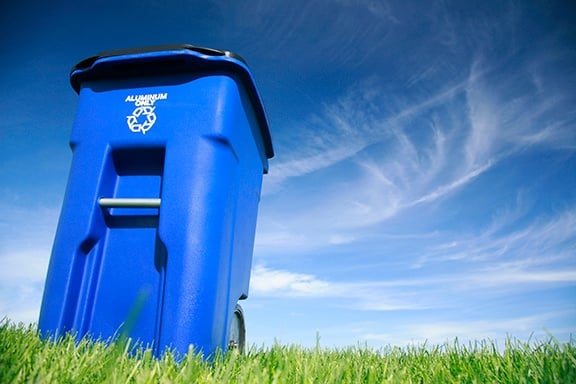How to Properly Dispose of Electronic Waste
Electronic waste (also known as e-waste) is a growing form of pollution today. Our heavy reliance on electronic devices has led to huge numbers of these devices being manufactured and discarded on a regular basis.

By Dinali Mallikage
July 11, 2017
Electronic waste (also known as e-waste) is a growing form of pollution today. Our heavy reliance on electronic devices has led to huge numbers of these devices being manufactured and discarded on a regular basis.
An estimated 300 million computers and 1 billion mobile phones are produced every year, and approximately 40 million tons of e-waste is produced globally per year. E-waste represents about 70 percent of the US’ overall toxic waste.
E-waste is extremely hazardous to human health and the environment. E-waste is usually buried or incinerated in landfills where it pollutes the land, water and air, triggering public health problems. The smoke from burning e-waste can cause respiratory ailments like asthma and lung cancer. The leaching of mercury, lead and cadmium (heavy metals commonly used in electronic devices) into soil and water can lead to kidney failure, bone damage, birth defects, cancer, mental illness and death.
As one of the largest producers of e-waste due to their heavy dependence on electronic devices, businesses must take the initiative to properly dispose of e-waste. Proper disposal equates to less pollution, better resource conservation and greater business continuity.
Throwing away old electronic devices is detrimental to the environment, as they are brought to landfills where they will be buried or incinerated.
Donate Old Electronic Devices
If they are still fully functional, old electronic devices can be donated to schools, churches and charitable organizations. An adult literacy organization can use a computer running on last year’s software to effectively teach basic computer skills to students. A daycare center can use a gently used DVD player to play educational videos.
Look for a Responsible Recycler
If an electronic device is too old or too damaged to donate, look for a responsible recycler. Many recyclers dump e-waste in Third World landfills, where workers process e-waste manually and are exposed to hazardous substances.
e-Stewards is an association of individuals, institutions, businesses, non-profit organizations and government agencies that aim to promote responsible, safe and ethical disposal of e-waste. They use the e-Stewards Standard for Responsible Recycling and Reuse of Electronic Equipment, a principled and practical standard for electronics recycling and reuse, to help prevent dumping of illegal and hazardous e-waste on Third World landfills. e-Stewards has a list of accredited recyclers whom businesses and consumers can contact when they have old electronic devices to discard.
Reliance on electronic devices is an inevitable aspect of modern life and business. This technological advance should not be at the expense of the environment. Proper disposal of e-waste helps prevent pollution and public health problems. When pollution and public health problems are avoided, businesses can operate productively and profitably.
ADEC Innovations is a leading provider of ESG solutions, with expertise in delivering fully-integrated consulting, software and data management services. To learn more about waste management, contact ADEC Innovations today.
Related Articles
pollution, devices, Waste Management
There are no related posts.
Be a sustainability leader.
Our team supports you no matter where you are on your Sustainability Journey. Talk to us today to learn more.

